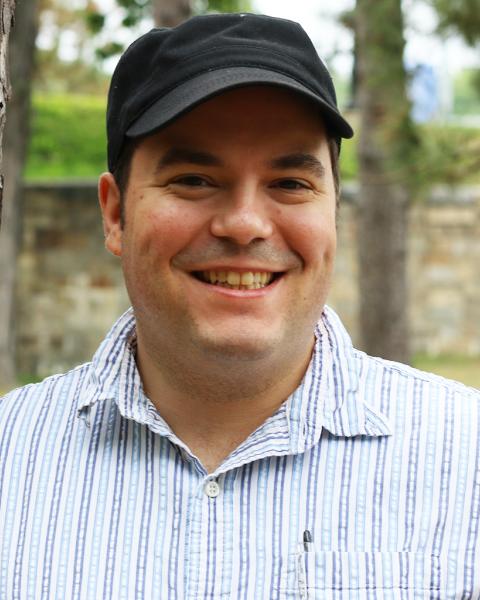Inspiring Enthusiasm
UNH Extension’s Community and Economic Development team has worked closely with Franklin community leaders since 2015. As the city continues to revitalize its downtown, we’re profiling the community leaders who are helping change the Three Rivers City.
When George Dzujna and his wife, Christine, moved to Franklin in 2005, one of the first things they did was learn more about the city through Choose Franklin. A nonprofit group established in 2004, Choose Franklin was hosting workshops and tours of city departments—the police and fire departments, city hall, municipal services and others just as Dzujna arrived.
“It was great for us because we were new to the area, so we got to see and understand what Franklin is all about,” he says.
Originally from Connecticut, he and his wife searched far and wide for the ideal New England town in which to retire. They found a “perfect” house in Franklin, and the more Dzujna learned about the city, the more he fell in love.
He tried to take things easy during his first year of retirement, but it wasn’t long before Dzujna became an active community leader—within a year, he was serving on Choose Franklin’s board and involved in other volunteer activities. Now, more than 12 years later, he’s on his third term on Franklin’s city council.
That involvement has given Dzujna a front-row seat for Franklin’s revitalization. “When we moved here, to be honest, there was something of a bad perception of Franklin. But when I saw the downtown, I saw a Diamond in the rough. And I thought that, if revitalization could happen, Franklin would be able to change easily,” he says.
Dzujna credits the city’s work with UNH Extension’s Community and Economic Development team with helping spur community involvement and help build momentum behind the revitalization. “That kicked off a lot of enthusiasm for people, and I really attribute it to bringing in people’s enthusiasm for revitalizing our buildings and downtown,” he says.
There are new shops and restaurants in town, old mill buildings have been redeveloped into apartments and there are plans for a whitewater recreation park. And while those are some of the most visible signs of Franklin’s renaissance, Dzujna says that small changes—installing new benches downtown, for example, or $400,000 in tax credits that helped pay for revitalizing downtown building facades—have had a profound impact.
“If it wasn’t for Cooperative Extension helping with this, I don’t think we would’ve been that far ahead,” he says.
The whitewater park and other projects have the capacity to “change the face of Franklin overnight” and attract more people to the city, according to Dzujna.
They might even help a new generation of future community leaders fall in love with Franklin—just like Dzujna did.

